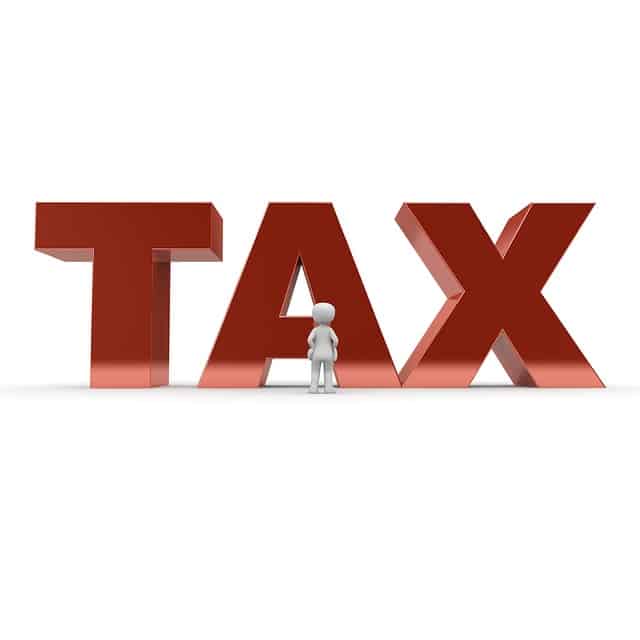Many countries in the world rely on tourism and their economy is based on that, many places charge tourist taxes, sometimes this is embodied in plane tickets or the taxes you pay at your hotel.
The main reason for collecting tourism taxes is an attempt to curb the number of tourists and prevent over-tourism. For other countries the money from taxes is used to maintain tourism facilities and protect the natural resources in that country.
Most of the time this is an insignificant additional payment embodied in the price you paid for the room or the price per person at the hotel, but sometimes you will find at the end of your stay at the hotel that you are charged another fee for each day you stayed.
This article will present you with an overview of the main taxes, fees and levies related to tourism that apply in the different countries of the world and the European Union.
The European Union collects a tourist tax, many countries in the Union already have tourist fees for various reasons. Until the end of 2022, non-EU citizens, including Americans, Australians, Britons and other travelers from outside the Schengen area, will have to pay €7 to enter EU countries. Children under 18 or adults over 70 will not have to pay the fee.
The types of taxes in tourism
Occupancy taxes
Occupancy taxes are the most common taxes and are levied on short-term accommodation (sometimes called transient accommodation) your accommodation will be paid for. They are usually charged per person, per night, or sometimes charged as a percentage of the room price.
As a rule, the occupancy taxes constitute a small part of the total cost of the accommodation compared to the cost of the accommodation itself.
In many cases, occupancy taxes must be paid in person, and cannot be included in the prepaid price of the accommodation unit.
A tax to improve the sector
Tourist taxes to improve the sector, these taxes go to the improvement of the sector and/or the destination, such as through sales promotion, tourism development projects and programs, steps and programs to improve tourism infrastructure and services, improvement and implementation of public services that affect the destination: cleaning, waste management, etc.
Tourism taxes intended for specific purposes
These taxes are intended for specific areas or resources in the destination, such as: environment, cultural heritage, social goals.
Green taxes
Taxes for environmental purposes, they arise from the desire to save resources and offset the possible negative effects of tourism. They create an incentive for the protection and restoration of the environment and its resources, while compensating the tourist activity in each region.
These taxes help generate funds so that destinations can invest in improvements such as environmental protection or resource recovery, encourage environmental awareness among tourists regarding their use of the destination's resources, promote a positive image of the destination and the companies located there by demonstrating their environmental concern.
The countries that charge tourist taxes
Thailand
Thailand charges a tourist fee of 300 baht (€8). The payment means that there will be better services for the tourists since the health insurance does not always cover it for the multitudes of tourists who visit Thailand every year.
The tourism taxes help the Thai government to develop tourist attractions, such as the Grand Palace in Bangkok and more after tourism such as the long-necked tribe, etc.
Tanzania
The Tanzanian government charges tourists an 18% VAT on tourism services such as transportation, safaris and camping fees.
Italy
Tourist taxes in Italy depend on where you will be traveling around the country. Rome's rate ranges from €3 to €7 per night, depending on the room type, but some smaller cities charge more.
Venice, the most visited Italian city to date has not charged tourist taxes, but all that is about to change soon when it announced that it will charge a tourist fee starting in 2022. Venice may soon start collecting a fee from tourists visiting from the summer of 2022 onwards, Venice suffers from a very large tourist load and therefore the city decided that in order to preserve it they must control the quota of tourists that will enter the city, starting from the summer of 2022 they created an online booking system. And in addition, in order to curb the entry of tourists, they will start charging a fee for entering the city. The proposed levy will vary between 3 and 10 euros, depending on whether it is low or high season.
Austria
The tourism levy is called Tourismusgesetz and Berherbergungsbeiträge.
In Austria you pay accommodation tax, which varies according to the district where you are. In Vienna or Salzburg you will pay an additional 3.02 percent per person for the hotel.
Belgium
The tourist tax in Belgium applies to the accommodation, a tax is charged for each night you stay.
Sometimes the payment will already be included in the price of the hotel room, but some separate the cost and make it an additional charge at the end of your stay, so you must make sure at the time of payment that this is the last and final payment when you book a hotel through the hotel or on booking.
Antwerp and Bruges
They charge a tourist tax rate for a room and not for each person. The rate in Brussels varies according to the size of the hotel and its rating. In general, you will be charged a tax of around €7.50.
Bhutan
While the tourist tax of most countries is less than 20 euros, Bhutan's tax is very high compared to the other countries. The minimum daily payment for most foreigners is: $250 (€228) per person per day in high season and slightly less in low season.
But before you get disappointed and give up on entering this amazing country, know that the amount you will have to part with covers a lot, the tax includes accommodation, transportation in the country, a guide, food and entrance fees, so you can get by just fine with this amount and you will only have to add money for waste.
Bulgaria
Bulgaria charges tourist fees for accommodation, this is a very low amount and varies depending on the region and hotel classification - up to about 1.50 euros.
Caribbean Islands
Most Caribbean islands have tourist taxes added to the hotel cost or you will have to part with exit fees.
Antigua and Barbuda, Aruba, Bahamas, Barbados, Bermuda, Bonaire, British Virgin Islands, Cayman Islands, Dominica, Dominican Republic, Grenada, Haiti, Jamaica, Montserrat, St. Kitts and Nevis, St. Lucia, St. La Maarten, St. Vincent and the Grenadines, Trinidad and Tobago and the US Virgin Islands all charge some kind of fee to visitors.
Fees range from €13 in the Bahamas to €45 in Antigua and Barbuda. Still imperceptible amounts considering the prices of flights and accommodation.
קרואטיה
Croatia, which has gained popularity in recent years thanks to its beaches and ancient cities and stable weather compared to other European destinations, increased its tourist tax in 2019. But the increased rate only applies during the summer peak season. Visitors pay around 10 kuna (€1.33) per person per night.
The Czech Republic
You will only have to pay tourist fees in the Czech Republic when visiting the popular capital city of Prague.
The amount that will be charged to you is very small (under 1 euro) and is paid per person, per night, for up to 60 nights, after which you will not have to pay tax, of course, tourists usually do not come for such a long time to receive the tax exemption. The tax does not apply to children under the age of 18.
France
The tourist tax in France is called "Tax de Séjour" and it is mandatory in many tourist places in France, it is added to your hotel bill and varies depending on the city you are in. The rates range from 0.20 Euro to around 4 Euro per person, per night. Especially popular tourist centers like Paris and Lyon use the money to maintain tourist infrastructure.
Germany
Germany has what they call a "culture tax" (a kulturförderabgabe), and also a "bed tax" (a bettensteuer), in cities like Frankfurt, Hamburg and Berlin levy taxes on the cultural scene and accommodation. The fee is around 5 percent of your hotel bill and the tax is also reflected in the prices for museums and cultural centers.
Payment of the local occupancy tax in some holiday towns in Germany grants access to certain public facilities that have been closed to the public. This may include spa facilities, use of certain public transport and entry to local attractions.
ion
The tourist tax in Greece is based on the number of hotel stars or the number of rooms you rent. It can be up to €4 per room. The initiative was started by the Greek Ministry of Tourism to help cut the debt of the country that was in bankruptcy and is now recovering, Greece is a country whose economy is heavily based on tourism.
Hungary
Tourist fees in Hungary only apply in Budapest, the capital, which is one of the most popular tourist destinations in Europe. Passengers have to pay an extra 4 percent each night based on their room rate.
Indonesia
Tourist taxes in Indonesia only apply in Bali. In 2019, a new law was enacted stating that foreign visitors to the Indonesian island must pay a fee in the region of €9. According to reports, the revenue from the tax goes to programs that help preserve the environment and culture.
Japan
In Japan, the tourist tax is paid at the end of the stay and is called the departure tax. Visitors to Japan pay 1,000 yen (around 8 euros) when they leave the country. The official tourism website claims that this small tax is dramatic for Japan's economy.
Malaysia
The Malaysian tourist tax is a flat rate and applies to every night you stay. The tax is around 4 euros per night.
ניו זילנד
Many tourists, locals arriving at hotels for work purposes, students and workers arriving in New Zealand must pay the International Visitor Tourism and Conservation Levy (IVL) when they arrive. But people coming from Australia are exempt.
The tax is $35 New Zealand dollars which is around €21.
Netherlands
In the Netherlands there is a land tourism tax and a water tourism tax. The tax is called tourismsbelasting.
The tax in Amsterdam amounts to 7 percent of the cost of a hotel room.
Portugal
Portugal's low tourist tax is paid per night per person and only applies to guests aged 13 and over. The tax is about 2 euros. But it has to be paid only in the first seven days of your stay.
סלובניה
The tourist tax in Slovenia varies depending on the location and rating of the hotel. The tax varies depending on the popularity of the area, it is slightly higher in larger cities and resort towns, such as the capital city of Ljubljana and the Lake Bled area where you will pay around 3 euros.
Spain
If you are going to Ibiza or Mallorca, you will have to pay tourist tax. The tourism tax, which applies to holiday accommodation in Spain's Balearic Islands (Mallorca, Menorca, Ibiza, Formentera), also applies to any holidaymaker aged 16 and over. In high season, the tax can reach up to 4 euros per night.
שוויץ
The tourist tax in Switzerland varies depending on the location. The cost is per night and per person and is around €2.20.
When you buy a hotel there, the price usually does not include the tourist tax - it is indicated as a separate amount, so it is easier to track it. The tax in Switzerland is only charged if you stay less than 40 days.
USA
The US has a hotel tax or lodging tax for travelers who rent accommodation in most states across the US. This is also called an occupancy tax. The fees apply to hotels, motels and inns. The highest rate is reportedly paid in Houston, with a 17 percent tax on account your hotel
you asked We answered!
Occupancy taxes are levied on short-term accommodation (sometimes referred to as transient accommodation) your accommodation will be charged. They are usually charged per person, per night, or sometimes charged as a percentage of the room price.
As a rule, the occupancy taxes constitute a small part of the total cost of the accommodation compared to the cost of the accommodation itself.
In many cases, occupancy taxes must be paid in person, and cannot be included in the prepaid price of the accommodation unit.
Apart from Malta, all 18 EU member states apply this levy at local government level (ie city, municipality or county). There can be significant municipal discretion regarding the rates applied. The rate usually varies according to the level of accommodation (e.g. star rating of the hotel or resort), location and local authority. Children often pay reduced rates or are completely exempt.
The full prices for adults range from a minimum of €0.10 (the lowest rate in Bulgaria) to a maximum of €7.50 (the highest rate in Belgium) per person per night. The average range is between €0.40 and €2.50. Most of this variation is due to the type of accommodation, with hostels and campsites attracting very low rates compared to luxury 5-star hotels.
Relatively low rates are charged in Eastern EU countries, with much higher rates in Western and Southeastern Europe. However, the percentage difference narrows, as room prices tend to be higher in the latter areas.
קרואטיה
France
ליטא
Malta
Poland
Parts of Spain
A little more than a third of the European Union countries do not charge an occupancy tax at all - including almost all the countries in the Nordic and Baltic regions and some in Western and Southeastern Europe.
The customer is responsible for paying these types of taxes, while the accommodation facility is responsible for collecting these taxes.
Tourist taxes to improve the sector, these taxes go to the improvement of the sector and/or the destination, such as through sales promotion, tourism development projects and programs, steps and programs to improve tourism infrastructure and services, improvement and implementation of public services that affect the destination: cleaning, waste management, etc.
These taxes are intended for specific areas or resources in the destination, such as: environment, cultural heritage, social goals.
Taxes for environmental purposes, they arise from the desire to save resources and offset the possible negative effects of tourism. They create an incentive for the protection and restoration of the environment and its resources, while compensating the tourist activity in each region.
Generate funds so destinations can invest in improvements such as environmental protection or resource recovery
To encourage environmental awareness among tourists regarding their use of the destination's resources, to promote a positive image of the destination and the companies located in it by proving their environmental concern.
In Japan, you will pay a departure tax of 1,000 yen (about $9.25) paid upon departure regardless of the number of days you stay in the country. The Japanese government explained the imposition of the tax as a way to improve Japan's tourism infrastructure ahead of the 2020 Summer Olympics in Tokyo.
In New Zealand, tourists will have to pay 35 New Zealand dollars (about $24).
In France, the tax varies by city: cities where tourism traffic is large, such as Paris or Lyon, use the tax receipts to maintain the tourist infrastructure.
In Germany there are two different tourist taxes: "culture tax" and "bed tax" which amount to 5 euros ($5.67) per person per day or 5% of the hotel bill.



















